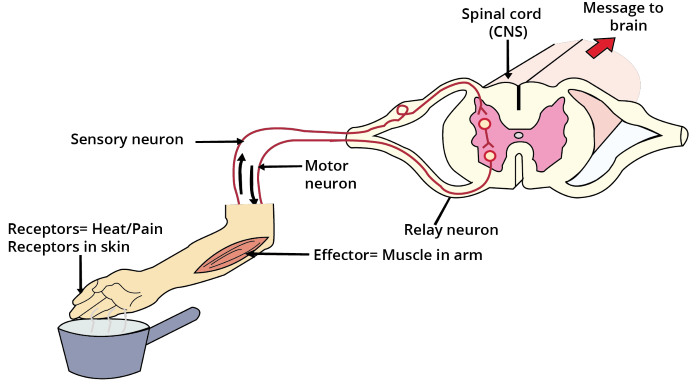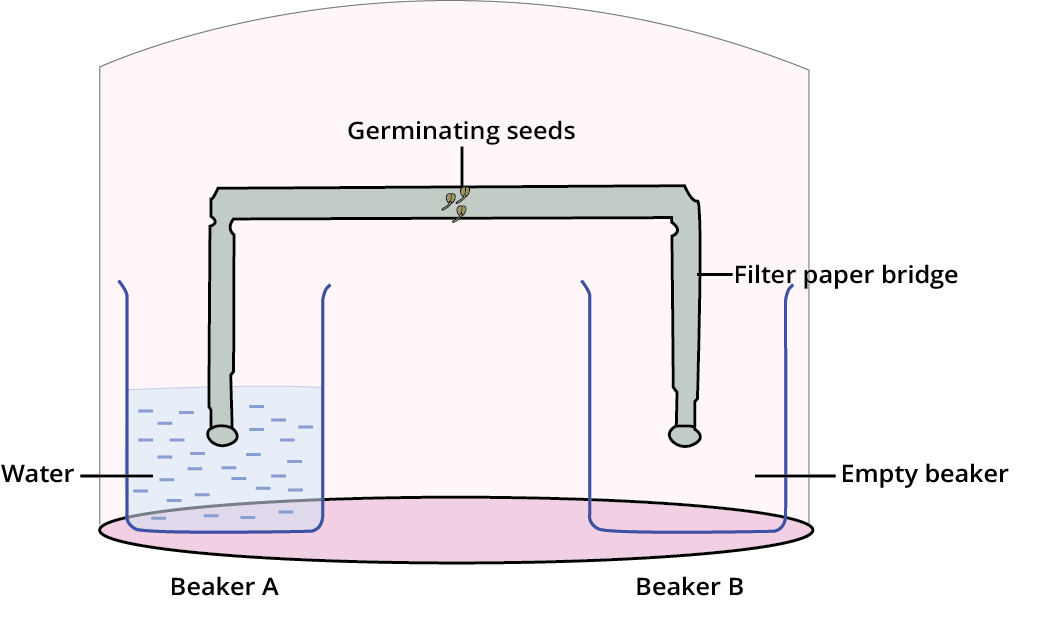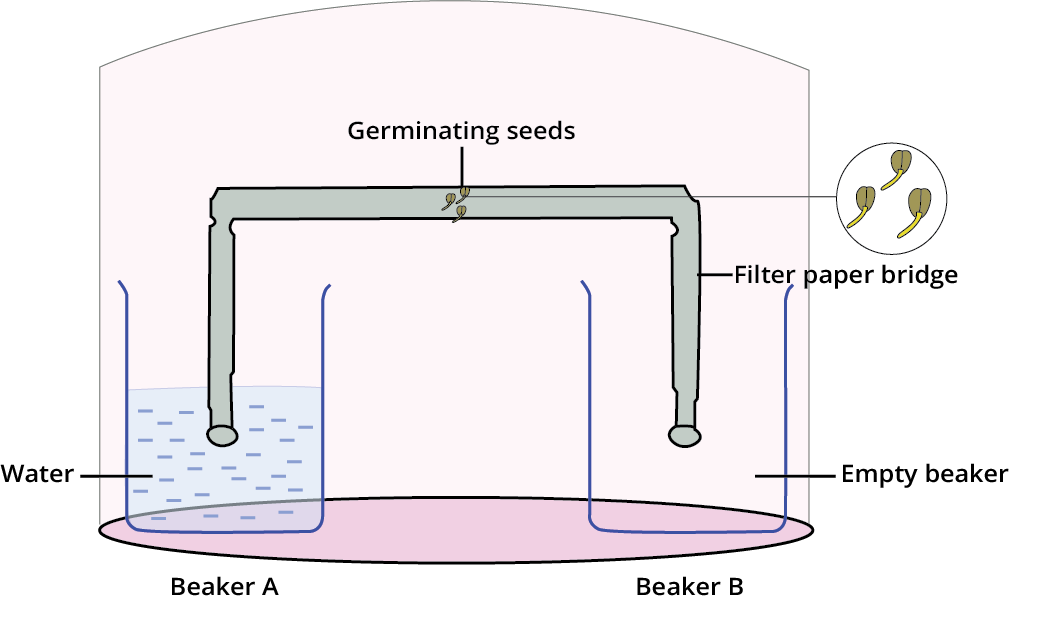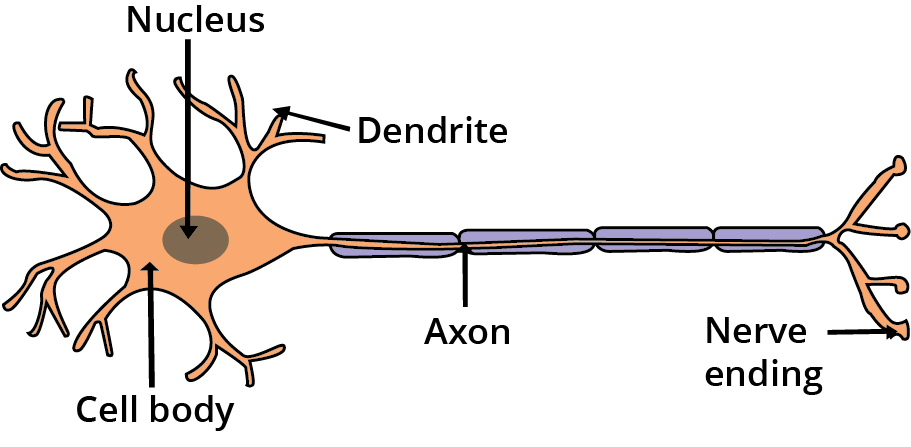What Are The Control And Coordination Class 10 Questions And Answers?
NCERT Solutions For Class 10 Science Chapter 6 Control And Coordination (2025-26)
FAQs on NCERT Solutions For Class 10 Science Chapter 6 Control And Coordination (2025-26)
1. What are the key concepts covered in the NCERT Solutions for Class 10 Science Chapter 6 Control and Coordination?
The NCERT Solutions for Class 10 Science Chapter 6 cover main concepts such as the structure and working of the nervous system, reflex actions, coordination in plants, animal hormones, types of movements (voluntary, involuntary, and reflex), brain structure and function, and chemical coordination through hormones. Each solution is structured stepwise as per CBSE 2025–26 syllabus to enhance conceptual clarity.
2. How is a reflex action different from a voluntary action as explained in NCERT Solutions for Class 10 Science Chapter 6?
Reflex actions are immediate, involuntary, and automatic responses to stimuli (e.g., blinking), whereas voluntary actions are conscious, controlled by the will, and involve decision-making (e.g., walking). In reflex actions, signals travel through a reflex arc, bypassing conscious brain control, while voluntary actions are controlled by the brain's cerebrum.
3. What steps are involved in solving typical exercise questions in Class 10 Science Chapter 6 NCERT Solutions?
The recommended steps include:
- Carefully read and understand the question as per CBSE format.
- Identify the key concept (e.g., nervous system, plant hormones).
- Write stepwise solutions using diagrams if required.
- Use appropriate scientific terminology and justify every step.
- Cross-check the answer with textbook examples and marking scheme.
4. Which diagram-based questions are most frequently asked from Control and Coordination in CBSE exams?
Commonly asked diagram-based questions in Control and Coordination include:
- Structure of a neuron with parts labeled (axon, dendrite, cell body, synapse)
- Reflex arc diagram showing receptor, sensory neuron, spinal cord, motor neuron, and effector
- Sections of the human brain (cerebrum, cerebellum, medulla oblongata)
5. How do the NCERT Solutions for Class 10 Science Chapter 6 explain the mechanism of action of plant hormones?
The NCERT Solutions explain that plant hormones (phytohormones) such as auxins, cytokinins, gibberellins, abscisic acid, and ethylene, control various growth and movement processes in plants. For example, auxins promote cell elongation, causing shoots to grow towards light (phototropism). Solutions provide CBSE-style structured answers with suitable examples and experimental references.
6. According to NCERT Solutions, what is the importance of the human brain in control and coordination?
The human brain is the central organ for controlling and coordinating all voluntary and many involuntary activities. It processes sensory input, controls learning, memory, emotions, balance, and automatic activities like breathing and heartbeat. Class 10 Science answers specifically explain the roles of the cerebrum, cerebellum, and medulla oblongata with clear functional distinctions.
7. In what ways do the NCERT Solutions for Class 10 Science Chapter 6 clarify the difference between nervous and hormonal systems of coordination?
The NCERT Solutions use comparative tables and examples to show that nervous coordination uses electrical impulses via neurons for rapid, short-lived responses, while hormonal coordination uses chemical messengers (hormones) for slower, long-lasting regulation. Each system's advantages and limitations are explained using real-life applications and CBSE-mandated formats.
8. What if the signals from the spinal cord are interrupted, as per explanations in NCERT Solutions for Chapter 6?
If spinal cord signals are interrupted, reflex actions below the injury site will be lost, voluntary movement can be impaired, and sensory input from affected regions may not reach the brain. NCERT Solutions describe both the anatomical and functional consequences, using stepwise logic for better CBSE exam understanding.
9. Why is iodised salt recommended, and how do NCERT Solutions for Chapter 6 address its significance for control and coordination?
Iodised salt provides iodine necessary for the synthesis of the thyroid hormone thyroxine. The NCERT Solutions explain that insufficient iodine leads to thyroid disorders, affecting metabolism and overall control and coordination in the human body, in line with the CBSE 2025–26 curriculum.
10. How do CBSE pattern NCERT Solutions help in answering HOTS (Higher Order Thinking Skills) questions from Control and Coordination?
CBSE-style NCERT Solutions help by:
- Encouraging application of concepts, not just rote learning
- Training students to solve reasoning, diagram-based, and analytical questions
- Providing stepwise breakdown and examples aligned with CBSE marking scheme
- Offering empirical and logical connections between topics (e.g., linking reflex arcs to survival advantage)
11. What role do receptors play in control and coordination, according to NCERT Solutions for Class 10 Science Chapter 6?
Receptors are specialized cells or tissues that detect changes in the environment (stimuli) and initiate nerve impulses. These are found in sense organs like eyes, ears, nose, tongue, and skin. Malfunction of receptors leads to diminished response or incorrect actions by the body, which is explained using examples as per CBSE guidelines.
12. How do NCERT Solutions explain the difference between phototropism and geotropism in plants?
NCERT Solutions clarify that phototropism is plant movement in response to light (e.g., shoots bending towards sunlight), while geotropism is movement in response to gravity (e.g., roots growing downward). Solutions include stepwise answers with diagrams, ensuring students meet CBSE presentation requirements.
13. What are common mistakes students make in Control and Coordination answers, as highlighted by NCERT Solutions?
Frequent mistakes include:
- Confusing voluntary and involuntary actions
- Incorrect diagram labeling (e.g., neuron vs. brain parts)
- Not mentioning neurotransmitters or synapses where required
- Writing general answers instead of stepwise/diagrammatic CBSE solutions
14. How does the NCERT Solutions approach benefit students preparing for the CBSE 2025–26 Science exams?
Solutions are prepared by experts as per latest CBSE marking schemes, focusing on clarity, stepwise problem-solving, and exact terminology. They include HOTS, application-based questions, and structured diagrams, ensuring students are well-equipped for board and competitive exam formats.
15. What is the significance of solving all questions from NCERT Solutions for Class 10 Science Chapter 6 Control and Coordination?
Solving all questions from NCERT Solutions ensures thorough preparation as per CBSE standards, covers the entire syllabus, strengthens conceptual understanding, and improves examination skills to score higher in both school and board exams as referenced in the 2025–26 curriculum.




















 Watch Video
Watch Video























